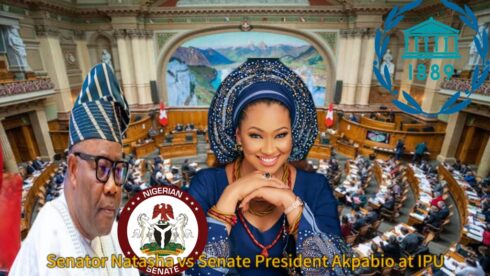Senator Shehu Sani, a prominent Nigerian politician and former lawmaker, recently condemned the age discrimination experienced by many Nigerian graduates. He highlighted how a significant number of unemployed graduates, who have spent years seeking employment, are often denied jobs due to government agencies’ age requirements. According to Sani, these stringent age limits exclude thousands of skilled and educated individuals who could make meaningful contributions to the workforce.
Shehu Sani argued that prioritizing only “fresh graduates” disregards the realities faced by many Nigerians. Due to limited job opportunities and high unemployment rates, it is common for graduates to spend years searching for work, often working temporary or underpaid jobs. For these individuals, age becomes an obstacle, effectively barring them from government employment, regardless of their qualifications. Shehu Sani emphasized that this approach is unfair and should be revisited to address the nation’s unemployment challenges.
The Prevalence of Age-Based Discrimination in Nigerian Government Jobs
Age restrictions for government jobs are a significant issue across Nigeria, where many government agencies stipulate strict age limits for prospective employees. These requirements generally favor applicants aged 25-30, which excludes older graduates who might have been searching for jobs for extended periods. With unemployment rates remaining high, these criteria place many educated Nigerians at a disadvantage, particularly those who graduated years ago but are still seeking stable employment.
This policy disproportionately impacts individuals from underprivileged backgrounds, who often face delays in their education due to financial or societal barriers. As a result, older graduates with qualifications and experience are consistently turned away, leaving government jobs accessible only to a select group of younger applicants. The exclusion perpetuates the cycle of poverty and reinforces inequality, as qualified individuals are unable to secure the employment opportunities they deserve.
Long-Standing Unemployment Woes Among Nigerian Graduates
Nigeria’s labor market is oversaturated, and unemployment is a long-standing issue for many graduates. Despite their qualifications, countless graduates remain unemployed for years due to a scarcity of opportunities, high competition, and systemic barriers. Government jobs are often seen as a beacon of hope due to their perceived stability and benefits, yet these positions remain out of reach for many.
Graduates who are forced to wait for years often age out of eligibility for government roles by the time they apply. The gap between graduation and employment is widening, which adds to the frustration and disenfranchisement of many educated Nigerians. Senator Shehu Sani’s remarks reflect the sentiments of a large section of the population who believe that age-based discrimination further deepens the employment crisis in Nigeria.
Implications of Age-Based Hiring on Economic Growth and Talent Utilization
The age discrimination in Nigeria’s government hiring practices has broader implications for economic growth and productivity. By restricting government positions to “fresh graduates,” agencies miss out on the expertise, maturity, and experience that older candidates could bring to the workforce. This policy limits the country’s ability to leverage the full potential of its talent pool, resulting in underutilization of skilled human resources.
Age-based hiring restrictions can discourage qualified professionals from applying to government jobs, which could lead to a lack of diversity in perspectives and skills within the public sector. Over time, this lack of diversity may impair government agencies’ effectiveness and ability to address complex issues that require a range of experiences and insights. Shehu Sani’s call for reform emphasizes the need for inclusive hiring practices that prioritize skills and capabilities over age.
Shehu Sani: Public Reaction and Growing Calls for Policy Reform
The public has responded strongly to Senator Shehu Sani’s critique, with many Nigerians sharing their own stories of missed opportunities due to age restrictions in government hiring. On social media platforms, Nigerians expressed frustration over a system that fails to accommodate the realities of delayed employment and prolonged job searches. Many argue that the age restrictions reinforce inequality, as individuals from disadvantaged backgrounds are often the ones who face these delays.
Advocacy groups and labor unions have echoed Shehu Sani’s call for reform, demanding that the government introduce more inclusive hiring practices. Some activists propose that agencies should assess candidates based on merit and relevant skills rather than age, while others suggest that age limits be removed or adjusted to reflect the challenges graduates face in securing jobs promptly. There is a growing consensus that age-based restrictions are outdated and counterproductive.
Prospects for Policy Change: Pathways to a More Inclusive Job Market
In response to the ongoing criticisms, some government officials have indicated a willingness to review hiring policies to create a more equitable job market. Discussions are underway regarding the removal or adjustment of age limits for government roles, which would allow a broader range of qualified candidates to participate in the recruitment process. While no official changes have been implemented yet, advocates remain hopeful that age-based hiring discrimination will soon be addressed.
Senator Shehu Sani’s statements are seen as a significant step in initiating change, as more lawmakers and stakeholders join the call for inclusive hiring policies. Moving forward, it is expected that policy reform will involve input from various stakeholders, including labor unions, advocacy groups, and the public. As Nigeria seeks to improve its unemployment rate, more inclusive and merit-based hiring practices could be crucial in creating a fairer and more effective workforce.
Table of Contents
Discover more from OGM News NG
Subscribe to get the latest posts sent to your email.














